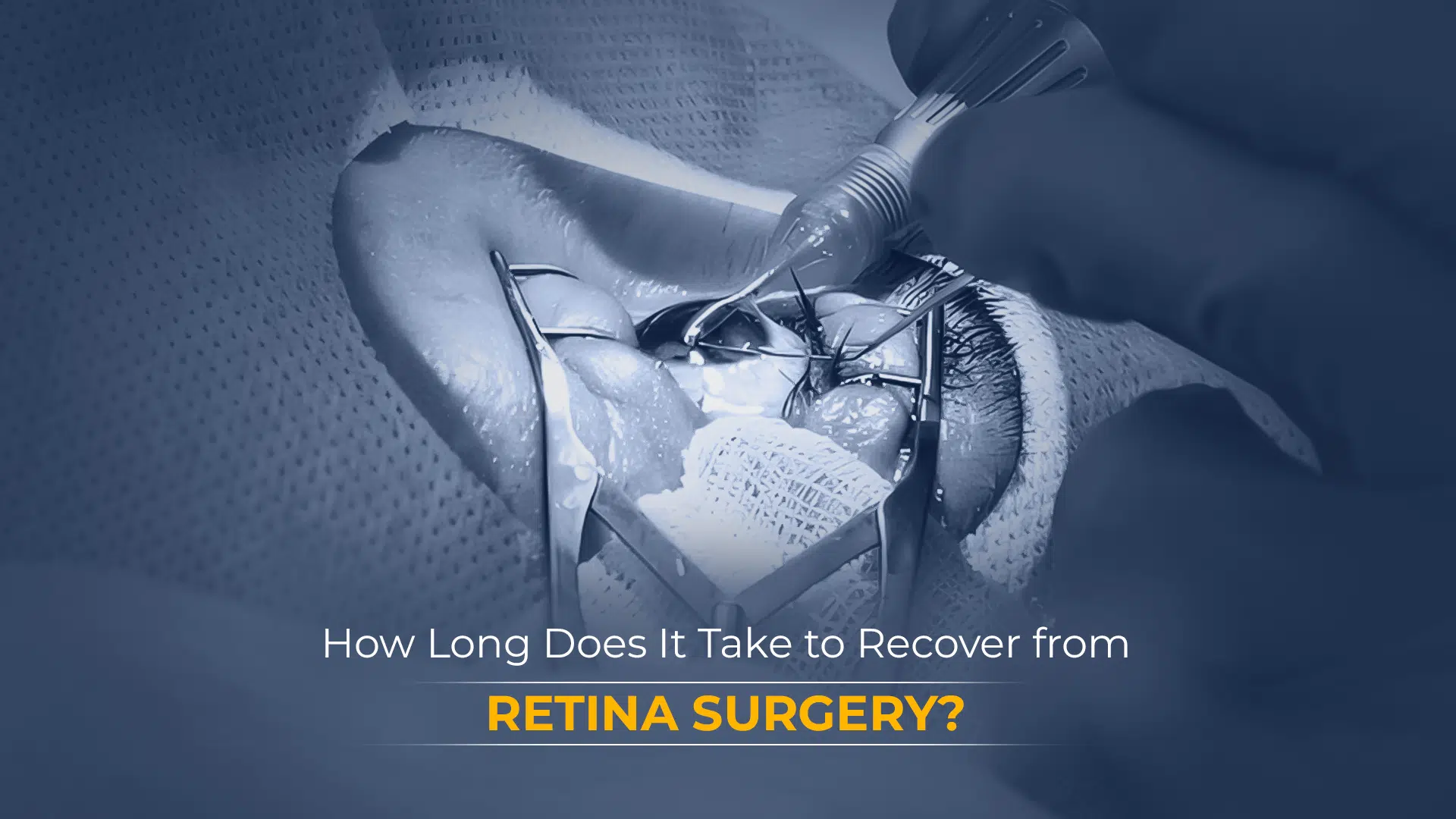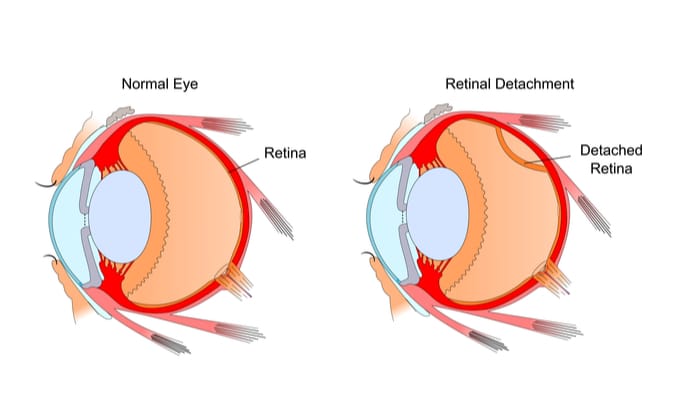
 Posted By Akio
Posted By Akio- Comments 0
Retina surgery is a specialized ophthalmology treatment that is essential to preserve or restore a patient’s vision. This is one of the ocular surgeries ophthalmologists perform to treat individuals suffering from retinal conditions like diabetic retinopathy, retinal detachment, or macular holes.
Reti
Every operation requires a recovery time to ensure the procedure’s success and prevent any unwanted complications. Your recovery depends on the kind of procedure you go through and also your post-surgery instructions and also your overall health.
This article is your comprehensive guide to understanding the recovery time period you may need when undergoing retina surgery.
Understanding Recovery Timeline
The time that is required for recovery after getting a retina surgery service varies on different factors that depend on person to person. However, here is the general timeline for recovery that will give you an overall idea:
- First 2 Days:
These first two days post retinal surgery consisting of 24-48 hours are extremely uneasy as the patients may experience slight discomfort, redness, and also mild swelling. Their vision can get blurry due to inflammation caused during the surgery due to the dilating drops. - First Week:
And for the first seven days, every patient is advised to follow their post-operative care strictly. These include maintaining specific head positions and avoiding strenuous activities to avoid putting pressure on your eyes since it can affect your recovery. - 2 to 4 Weeks:
During this later part of the week, the patient’s vision gradually improves and they can slowly resume light daily activities. But they also need to religiously follow their prescribed eye drops and medications.

Factors Affecting Recovery
Several factors influence the speed and effectiveness of a patient’s recovery after going through retina surgery, including:
- Type of Surgery – The types of retinal surgeries that are performed are vitrectomy, scleral buckle, or laser surgery. Each of these have different healing times and consulting an Ophthalmologist an eye care hospital doctor is the better option.
- Post-Operative Care – Following medical instructions, including maintaining head positioning and using prescribed medications, significantly impacts one’s healing process.
- Existing Health Conditions – If patients have conditions like diabetes or high blood pressure, then these factors can slow down the recovery process.
Also Read: How Diabetes Affects Your Vision
Post-Surgery Care Guidelines
Proper care after retina surgery is crucial for avoiding complications and ensuring the best outcome. Here are some key post-operative guidelines:
- Follow Medical Advice – It is very important to attend all the routine follow-ups advised by your ophthalmologist to stir away from any post-surgery complications.
- Rest and Avoid Strenuous Activities – You must refrain from lifting anything heavy, bending, or doing sudden eye movements as these will put pressure on the eyes which is not advisable post-surgery.
- Maintain Proper Head Positioning – During retinal surgery if a gas bubble is used most ophthalmologists recommend keeping the head in a certain position and it is essential for healing purposes.
- Use Prescribed Medications – It is important to apply eye drops regularly and take the medication as prescribed.
- Protect the Eyes – Avoid rubbing or touching the eyes, and wear protective eyewear when needed.
- Monitor Symptoms – Contact your eye specialist immediately if you experience severe pain, vision loss, or some other symptoms.
Read More: When to Visit a Pediatric Eye Specialist
When Can You Resume Normal Activities?
The timeline for returning to everyday activities depends on the type of retina surgery performed and individual healing progress:
- Reading and Screen Time – This can be resumed immediately from the next day of surgery.
- Driving – This should only be attempted once vision stabilizes and an ophthalmologist approves it.
- Exercise and Physical Activities – Light activities can be resumed after a few days, but intense workouts should be avoided for at least a month.
- Work and Travel – Office work can be resumed in a couple of days, while air travel should be avoided if gas bubbles are used, as altitude changes can affect the eye.
Conclusion
Thus visiting an Eye Care Hospital in Delhi periodically as aligned by your ophthalmologist is crucial to keep yourself in check-up.
The AK Institute of Ophthalmology in Delhi is a premium eye care hospital that aims to provide its patients with the utmost care and guidance. From understanding the needs and requirements of the patient and then family members to guiding them through all the retinal surgery procedures we take care of all of them to ensure the surgery and the recovery process is seamless.
Recent Posts
- Retina Surgery Recovery: Timeline, Post-Surgery Care & When to Resume Normal Life
- Pink Eye: Causes, Symptoms, Treatment, and Essential Eye Care Tips
- The Importance of Regular Eye Exams: Detecting Vision Problems Early
- A Comprehensive Guide to Retinal Diseases: Prevention, Symptoms, and Treatments
- Understanding Cataract Surgery: What to Expect and Recovery Tips


